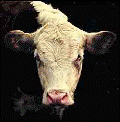Animal Science, Department of

Department of Animal Science: Dissertations, Theses, and Student Research
First Advisor
Richard N. Funston
Second Advisor
Jennifer R. Wood
Date of this Version
4-2018
Document Type
Thesis
Abstract
The objective of these 4 studies was to evaluate the effects of management decisions on reproductive performance of beef females. Experiment 1 evaluated the efficacy of a novel s.c. prostaglandin F2a injection on estrus synchronization and pregnancy success in yearling beef heifers. Heifers receiving a 2 mL s.c. injection of Lutalyse HighCon had similar estrus response and pregnancy rates compared to 5 mL Lutalyse i.m. within 2 different estrus synchronization programs. In experiment 2, May-calving heifers and primiparous cows were allotted to receive either no supplementation or supplement (0.45 or 0.91 kg/d per animal, heifers or primiparous cows, respectively) throughout the breeding season. Although supplementation increased BW, pregnancy rates were not impacted. In experiment 3, May-calving females were allotted to graze either sub-irrigated meadow or upland range throughout the breeding season. No differences in pregnancy rate were detected, despite differences in BW and BCS gain over the breeding season. Finally, experiment 4 examined the effects of varying levels of late gestation nutrition on dam and subsequent progeny performance. Multiparous, May-calving dams were allotted to graze either meadow or range forage and then to receive either no supplement or 0.45 kg/d per cow of a 33% CP supplement during late gestation. Prepartum meadow grazing tended to increase dam rebreed pregnancy rates. Heifer progeny had increased rebreed pregnancy rates as a primiparous cow, and steer progeny had increased marbling score if their dam grazed meadow. Dam supplementation increased BW of progeny over 2 generations. In summary, these experiments demonstrate the following findings: 1) a higher concentrate s.c. injection of prostaglandin F2a is effective in synchronizing estrus of beef heifers, 2) supplementation or differing forage type during the breeding season of a May-calving herd does not impact reproductive response, and 3) differences in late gestation nutrition of a May-calving herd results in altered progeny growth and performance.
Advisors: Richard N. Funston and Jennifer R. Wood


Comments
A THESIS presented to the Faculty of The Graduate College at the University of Nebraska In Partial Fulfillment of Requirements For the Degree of Master of Science, Major: Animal Science, Under the Supervision of Professors Richard N. Funston and Jennifer R. Wood. Lincoln, Nebraska: April, 2018
Copyright (c) 2018 Alicia Caitlin Lansford